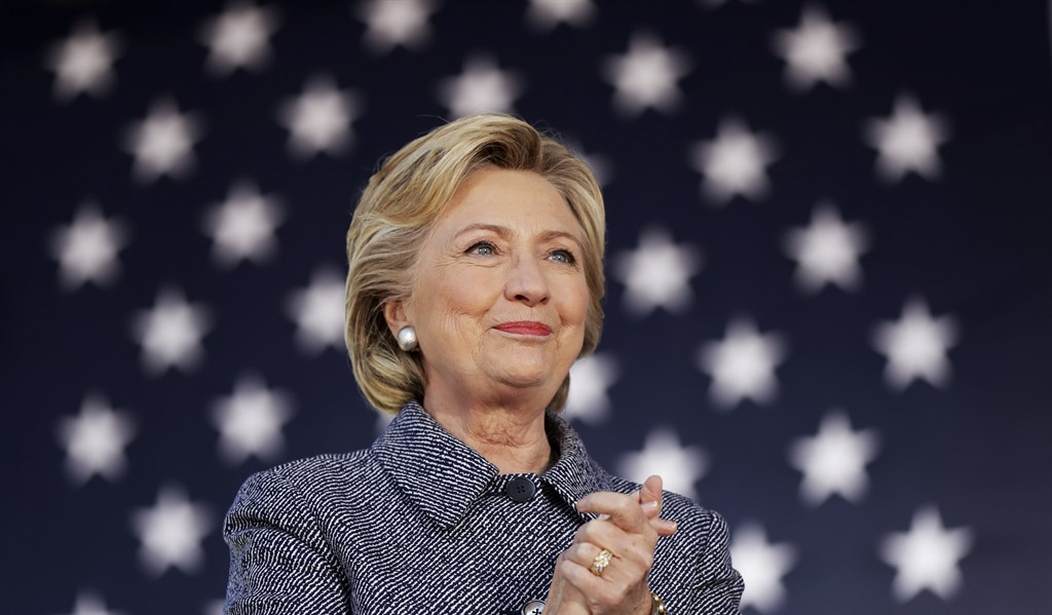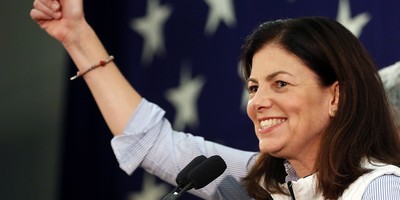FBI Director James Comey, who testified in front of two congressional committees this week, still maintains that he was unable to recommend that the DOJ charge Clinton with mishandling classified documents because of insufficient evidence proving "intent" -- although the actions themselves are irrefutably illegal.
Well, how exactly did he anticipate gathering this proof, when the DOJ had proactively shielded the five people tasked with setting up the private system and then destroying it? Was he hoping to extract a confession directly from Clinton?
Why would, for instance, a Clinton functionary like Cheryl Mills help prosecutors once she'd already secured safeguards against any criminal prosecution? While testifying in front of the House Judiciary Committee, Comey claimed that Mills was already "cooperative" and that the Justice Department had assured the FBI she had done nothing wrong.
If she were accommodating and completely innocent, why would she seek -- and be given -- immunity? A lawyer for Mills and Heather Samuelson, another one of the five, had already admitted the deal was struck to protect her clients from potential prosecution arising from "classification" on their laptops. Apparently, the DOJ was more convinced of their innocence than their lawyer was.
In the FBI's summary statement, Mills alleged that she didn't know about Clinton's email server until after the secretary of state's tenure was over. Emails since uncovered, however, show this to be untrue. Remember also that, President Obama claimed that he first learned about Clinton's illegal server through "news reports." If that's true, why did he email Clinton on her private server under a pseudonym?
Recommended
Comey admitted Wednesday that one of Clinton's lawyers -- "it might have been Cheryl Mills" -- told Paul Combetta, Clinton's IT specialist, to delete email files from Clinton's secret server only days after Congress ordered them to be preserved. And Comey assures us that none of this is obstruction of justice.
Then, at another point, he told the committee that the DOJ agreed to give immunity because the FBI didn't feel like wrangling with lawyers for years. "The FBI judgment was we need to get to that laptop. We need to see what it is," he explained. "This investigation's been going on for a year."
So I guess Mills was less than cooperative. Yes?
And why is Comey, who doesn't "give a hoot about politics," concerned about timetables, rather than making the best case? If the laptop was important enough to hasten a deal that protected a potential witness from prosecution, why wasn't it important enough for the FBI to subpoena? If Mills' lawyer is worried about potential criminality, why take a plea bargain off the table? Is this how it works for everyone?
It was rather amazing to hear Comey concede that the DOJ's immunity spree was "unusual." More unusual, perhaps, was that three of the people with those deals still ended up taking the Fifth, and another didn't even bother showing up when Congress called him. It's also unusual that a high-profile case featuring numerous immunity deals resulted in no charges.
To Comey, it was also "very unusual" that the FBI would conduct an interview with the target of an investigation -- where wholly innocent Clinton was surrounded by nine lawyers -- with two of the immunized witnesses in the case present. That's something Comey admitted had never happened in his career.
Jonathan Turley, a law professor at George Washington University, who first defended the FBI's decision not to prosecute Clinton, put the decision in historical context: "Of all of the individuals who would warrant immunity, most would view Mills as the very last on any list. If one assumes that there may have been criminal conduct, it is equivalent to immunizing H.R. Haldeman and John D. Ehrlichman in the investigation of Watergate."
Comey claimed that it was not his purview to decide who people use as their lawyers. That is true. What he failed to mention was that he determined the parameters of the interview. He could have pressured Clinton to leave Mills home, by impelling the target of the investigation to appear rather than allowing it to be voluntary interview. In a deposition about the email scandal, Mills claimed client-attorney privilege, though she was chief of staff, not Clinton's lawyer, during her tenure at the State Debarment.
Comey attempted to distance himself from the immunity deals by pointing out that he had not personally struck them. "It's a decision made by the Department of Justice, I don't know at what level inside," Comey said in the House panel. He continued, saying, "In our investigations, any kind of immunity comes from the prosecutors, not the investigators."
Surely, the DOJ doesn't offer witnesses protection from prosecution in high-profile cases without asking FBI investigators. If they did, then it would suggest a politicized process -- something this case reeks of already.

























Join the conversation as a VIP Member